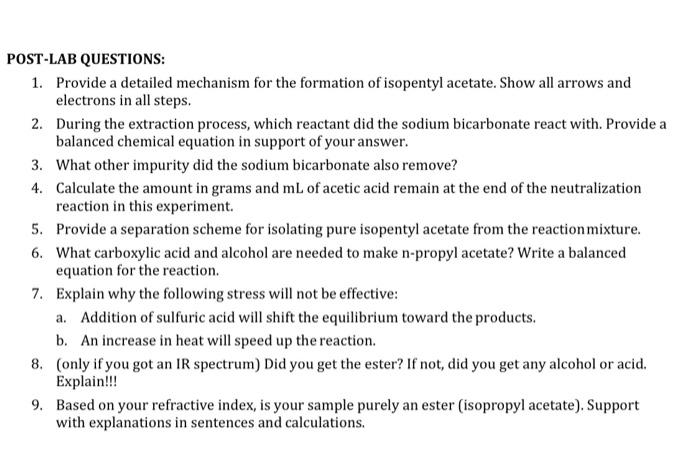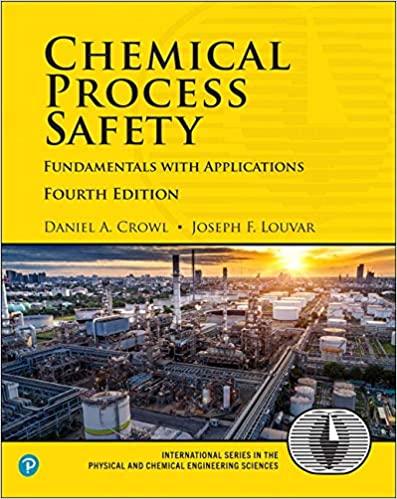Answered step by step
Verified Expert Solution
Question
1 Approved Answer
can skip #1 post lab questions for the syntgesis of isopentyl acetate (banana oil) for the question with the separation scheme, during tye extraction pricess:
can skip #1 

post lab questions for the syntgesis of isopentyl acetate (banana oil)
POST-LAB QUESTIONS: 1. Provide a detailed mechanism for the formation of isopentyl acetate. Show all arrows and electrons in all steps. 2. During the extraction process, which reactant did the sodium bicarbonate react with. Provide a balanced chemical equation in support of your answer. 3. What other impurity did the sodium bicarbonate also remove? 4. Calculate the amount in grams and mL of acetic acid remain at the end of the neutralization reaction in this experiment. 5. Provide a separation scheme for isolating pure isopentyl acetate from the reaction mixture. 6. What carboxylic acid and alcohol are needed to make n-propyl acetate? Write a balanced equation for the reaction. 7. Explain why the following stress will not be effective: a. Addition of sulfuric acid will shift the equilibrium toward the products. b. An increase in heat will speed up the reaction. 8. (only if you got an IR spectrum) Did you get the ester? If not, did you get any alcohol or acid. Explain!!! 9. Based on your refractive index, is your sample purely an ester (isopropyl acetate). Support with explanations in sentences and calculations for the question with the separation scheme, during tye extraction pricess:
25 ml cold water was used to wash
then 25 ml of NaHCO3, then 25 ml of saturated NaCl. please show a seperation scheme
and help with all the other questions as well
Step by Step Solution
There are 3 Steps involved in it
Step: 1

Get Instant Access to Expert-Tailored Solutions
See step-by-step solutions with expert insights and AI powered tools for academic success
Step: 2

Step: 3

Ace Your Homework with AI
Get the answers you need in no time with our AI-driven, step-by-step assistance
Get Started


